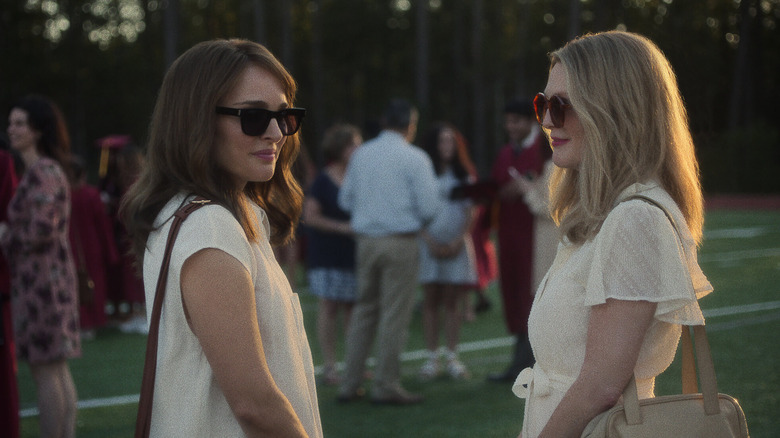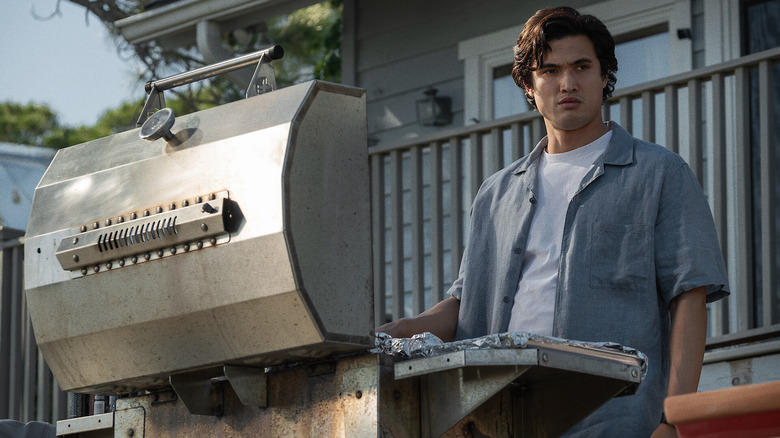A Key Player In May December Suffered An Accident That Forced Last Minute Changes
Any movie that gets made is nothing short of a small miracle, so when the final product is as unfathomably good as "May December," it's worth celebrating. Todd Haynes' newest film is a striking, discomforting story of an actor (Natalie Portman) shadowing the life of a woman (Julianne Moore) she'll be playing in a movie based on the woman's notorious marriage to the man she groomed when she was 36 and he was only 12. It's a ghastly situation loosely based on the real lives of Mary Kay Letourneau (RIP BOZO) and Vili Fualaau, presented in the beautifully complex and gasp-inducing melodrama that could only come from Todd Haynes. The score is perfect, the camera work is masterful, the acting performances are some of the best of the year, and Samy Burch's script is a revelation. And to think it all almost fell apart before it ever began.
Cinematographer Edward Lachman has shot Haynes' last seven feature films, but was absent for "May December." But in speaking with Interview Magazine, Haynes explained that the reason Christopher Blauvelt took over as director of photography was not due to a creative falling out or any other juicy, headline-grabbing drama, but solely due to practical circumstances. As Haynes said, "And then some accidents happened. Ed Lachman, who has been shooting my movies since 'Far From Heaven' in 2002, broke his femur bone and couldn't shoot the movie so I had to get a new DP like, two weeks before pre-production."
A whole new energy
It's difficult to imagine what "May December" would have looked like with Edward Lachman's signature touch. Still, Christopher Blauvelt more than understood the assignment, and the visual language of the film is pitch-perfect. But Blauvelt wasn't the only new addition to Haynes' roster of usual suspects. Production designer Sam Lisenco is someone he had been planning on working with on a different project that sadly didn't happen, but fortunately, "May December" was the perfect fit. "It was a lot of new relationships and somehow that contributed to this fresh energy," Haynes said. "We shot it in 23 days. I mean, the thing was just nuts." Given the heaviness of the subject matter, 23 days is remarkably impressive. But Haynes said that he and his crew developed a plan to work "aesthetically and conceptually with the script," and it was smooth sailing from there. "I wasn't pulling my hair out and freaking out the way everyone does in movies at some point."
The fruits of their labor are a feast for the eyes, as Lisenco and Blauvelt present a pastel nightmare completely saturated with unease. The effectiveness of the film's handling of power imbalances in predatory relationships and the way Hollywood exploits the trauma of real people for entertainment fodder is the result of every piece of the puzzle falling perfectly into place. There's no denying that Lachman would have done a phenomenal job, but Blauvelt's unplanned inclusion feels like a bit of true movie magic.

